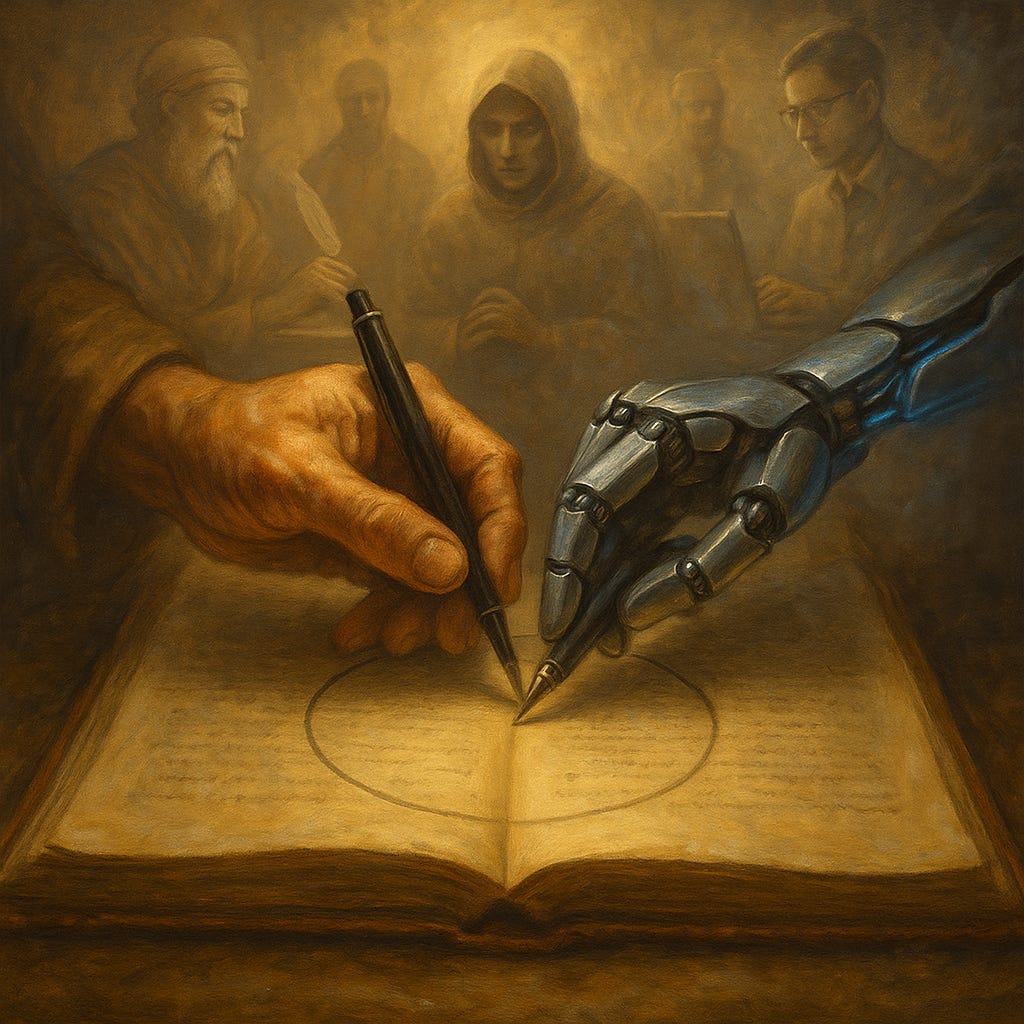Under the Same Sun
Choosing Our Collective Story Beyond Weariness
Choosing Our Collective Story Beyond Weariness
I grew up with the King James Bible, and certain verses were like familiar landmarks in the landscape of my understanding. Among them were the stark pronouncements of Ecclesiastes: "Of making many books there is no end, and much study is a weariness of the flesh," and the more widely quoted, "What has been will be again, and what has been done will be again; there is nothing new under the sun."
These weren't just abstract lines; they felt like honest reflections on the nature of existence. The endless human striving, the cyclical patterns of history, the feeling that despite all our efforts, we often end up back where we started. There was a deep, almost unsettling truth in that—a wisdom that resonated with life’s repeated challenges and disappointments. Yet, alongside the truth, there was also a quiet risk: a subtle drift toward resignation. If there’s nothing new, why try? If endless study is weariness, what’s the point of seeking?
It’s a sentiment that echoes today, especially in the digital age. We feel the weight of the information flood, the weariness of scrolling through endless content—some of it labeled as “artificial,” but much of it just as manufactured. Whether it’s produced by a person, a team of PR strategists, or an algorithm, the output often feels like more of the same—iterations on familiar patterns, packaged for consumption. We’re living the modern version of “making many books,” and the digital noise can feel like “a weariness of the flesh.” The cycles show up too—in news headlines, social media trends, political polarization. It’s easy to see why we might feel stuck in loops, trapped in the ancient refrain: “nothing new under the sun.”
But the danger isn’t in the truth of that refrain. Life does have recurring patterns, and human effort can feel repetitive. The real danger lies in letting that truth become a limiting script—a quiet agreement that things can’t change because “that’s just how the world is.” That’s the trap: when “nothing new under the sun” becomes an excuse for inaction.
Growing up, I saw how an over-focus on the cyclical could sometimes sap the energy of faith. It could lead to a kind of lukewarm resignation—not intentionally cold or rebellious, but lacking a sense of purpose and belief in change. Maybe the ultimate hope was deferred to a distant future, or maybe the present just felt like an unchangeable cycle of struggle. The wisdom of Ecclesiastes, meant to ground us, could sometimes turn into a quiet permission to stop trying.
But what if “nothing new under the sun” isn’t a sentence of futility, but a foundation we can build on? If the core elements of human experience—our needs, our challenges—stay constant, that doesn’t mean we’re doomed to repeat the same mistakes. It means we know what we’re working with. The raw materials don’t change, but how we shape them can.
The weariness of endless, directionless striving is real, but it doesn’t cancel out the value of focused, purposeful action. We don’t need to invent everything from scratch. The building blocks—love, justice, care for the vulnerable—have always been there. Our task is to decide, together, what kind of world we want to build with them.
That’s how we jailbreak the script. We see the patterns, but we don’t let them dictate our future. We ask: Why does this pattern persist? What would it take to break it? We choose collaboration over competition, shared well-being over hoarded wealth, restorative justice over cycles of punishment.
This isn’t about creating something utterly unprecedented. The path forward is often hidden in plain sight, in old books and ancient wisdom—like the call to love your neighbor, to seek justice, to care for the vulnerable. What’s rare isn’t the ideas—it’s the choice to consistently live them out, together.
Authenticity, then, isn’t about being radically unique or inventing something brand new. It’s about being true to a path, deciding—together—what kind of “under the sun” we want to inhabit. It’s about showing up, every day, to build it.
The wisdom of Ecclesiastes still holds: life has its limits, and certain strivings can be wearying. But its power isn’t in leading us to despair—it’s in helping us see the cycles so we can break them. The sun is the same, the earth is the same, but the story we tell and the world we shape “under the sun” is still unwritten. The pages aren’t endless or meaningless—they’re the present moment. And the pen is in our shared hand.


Well done! This was a pleasant read